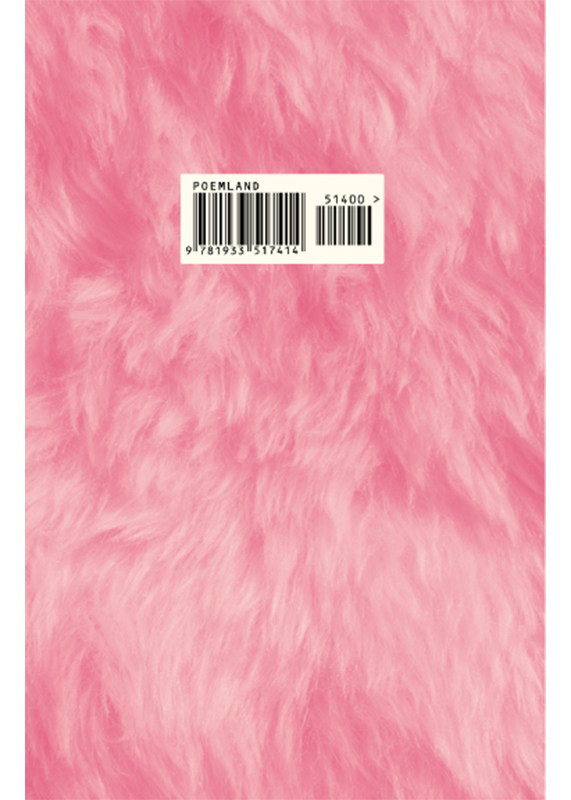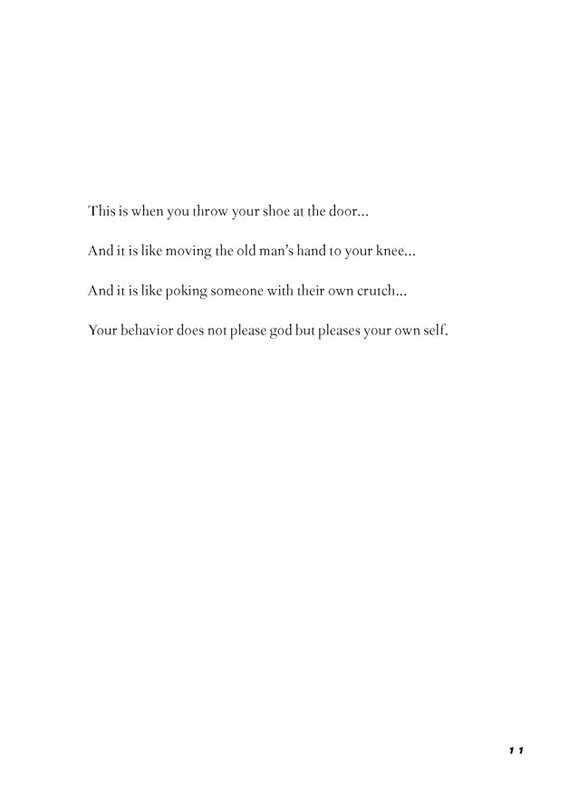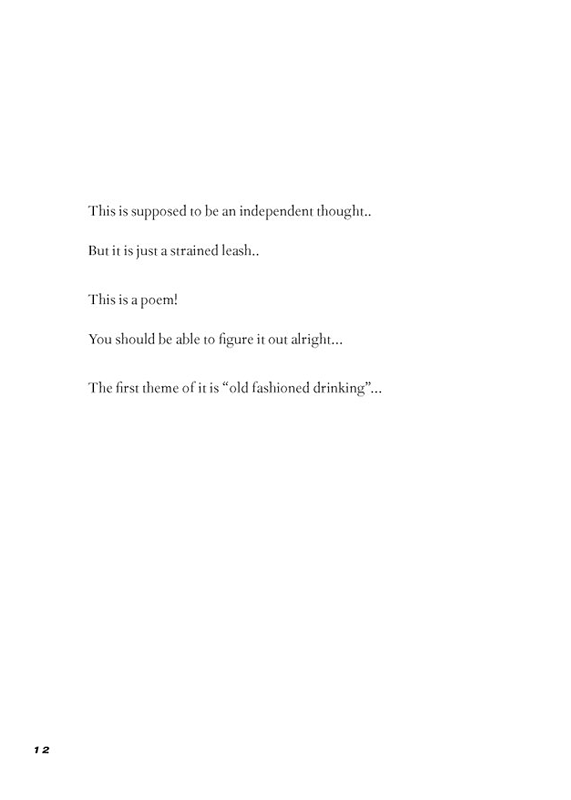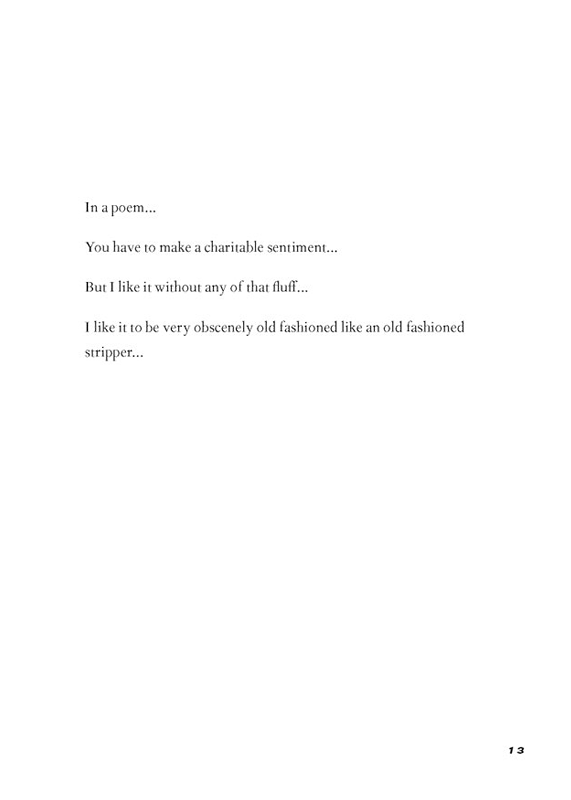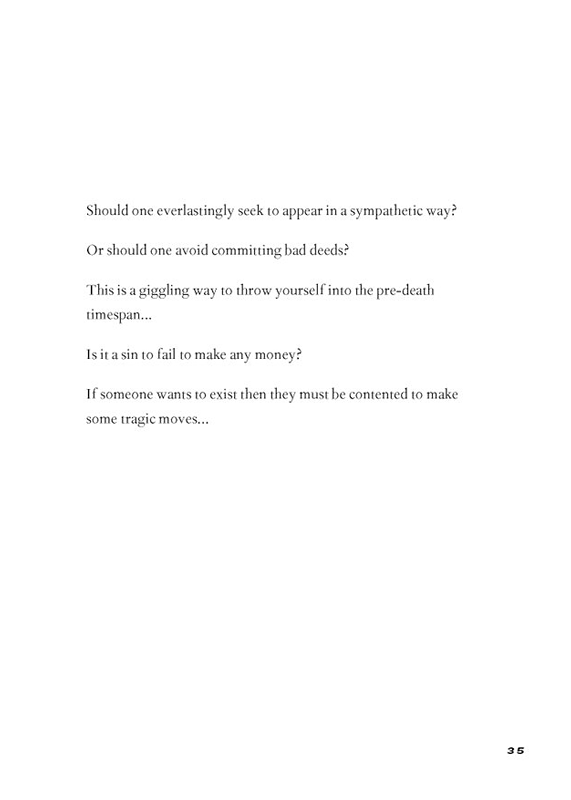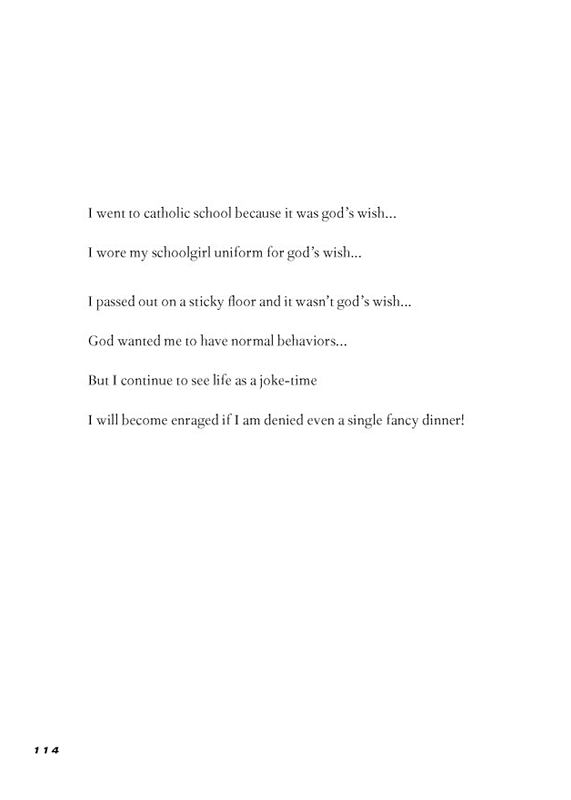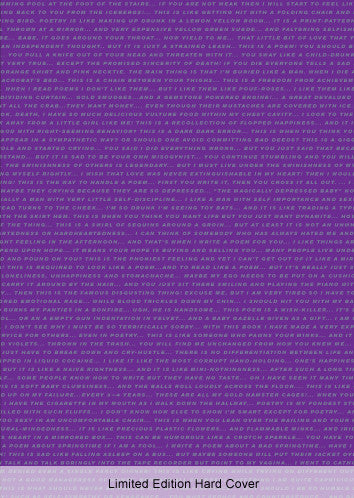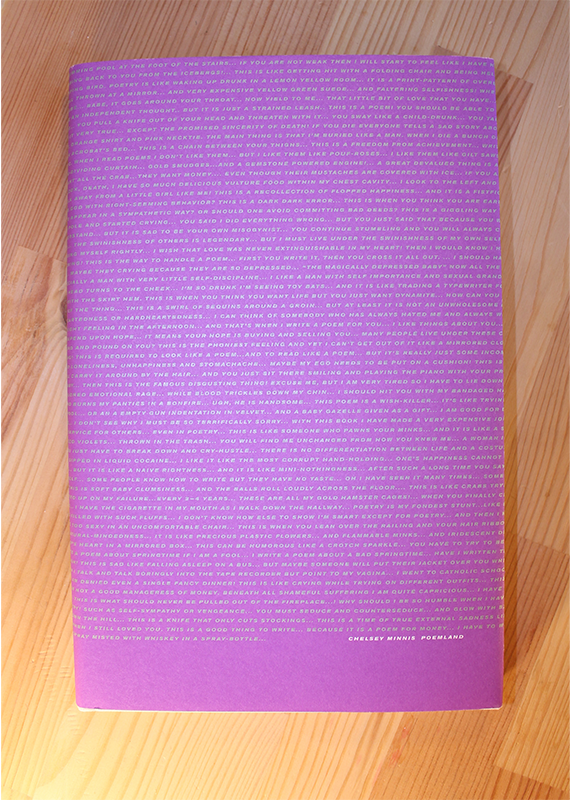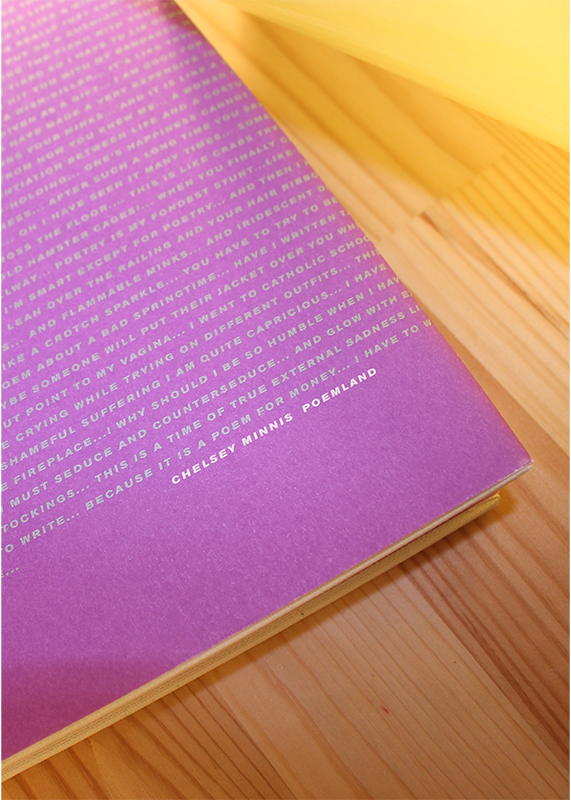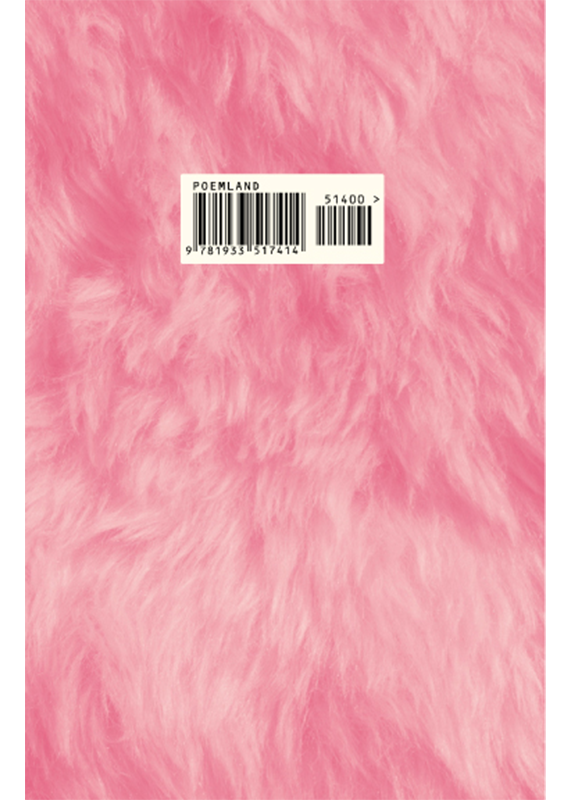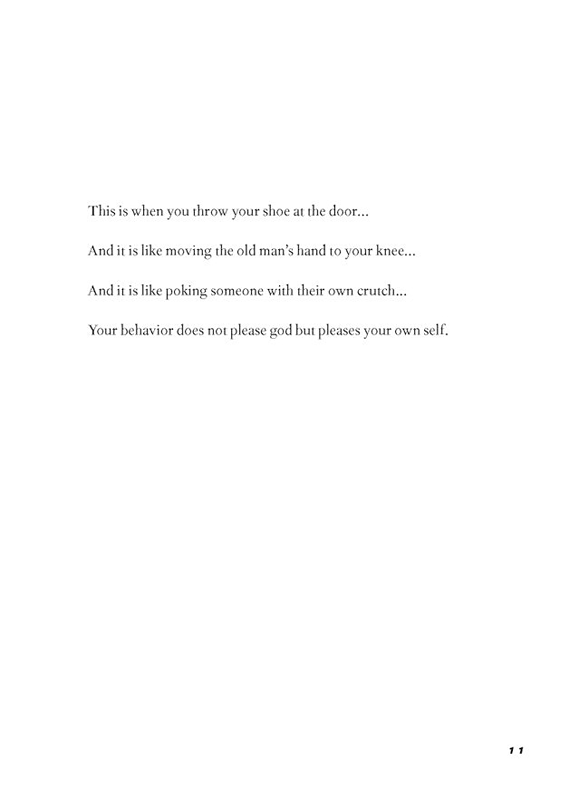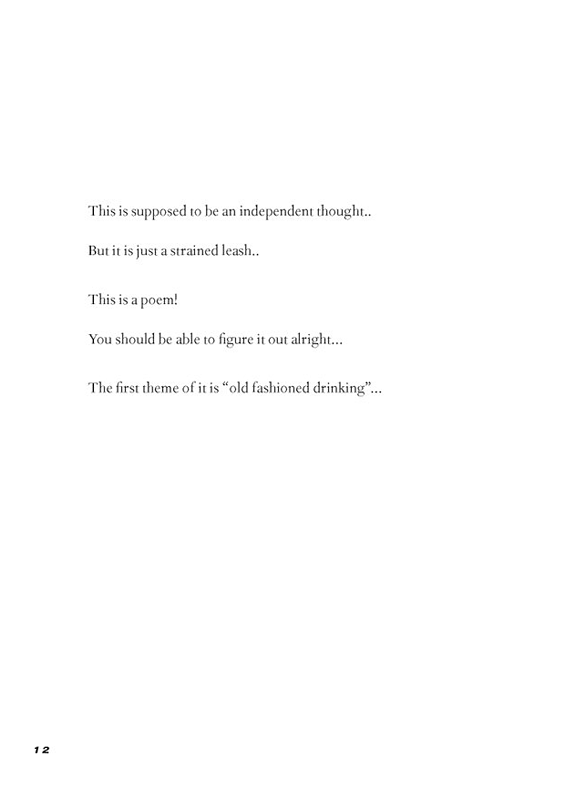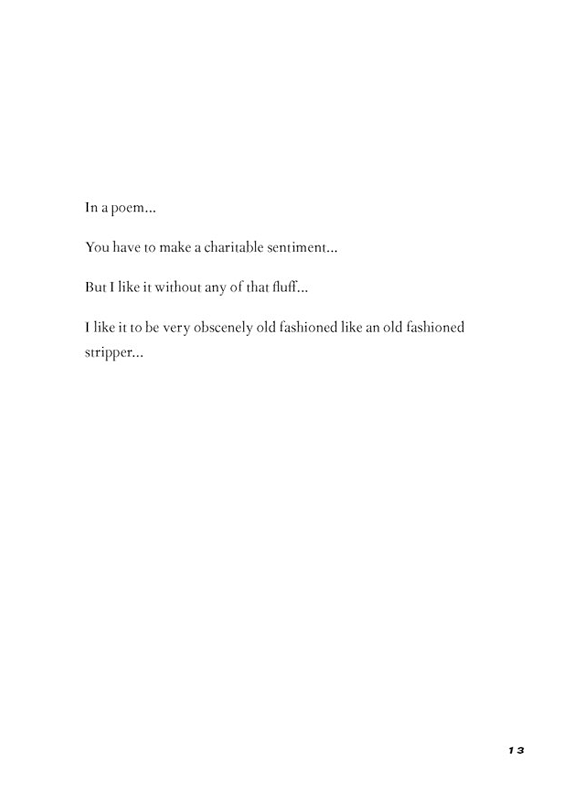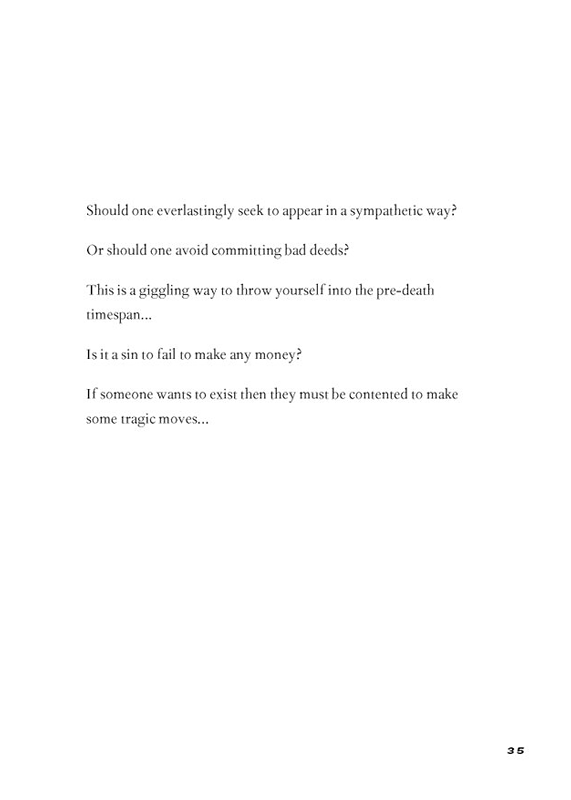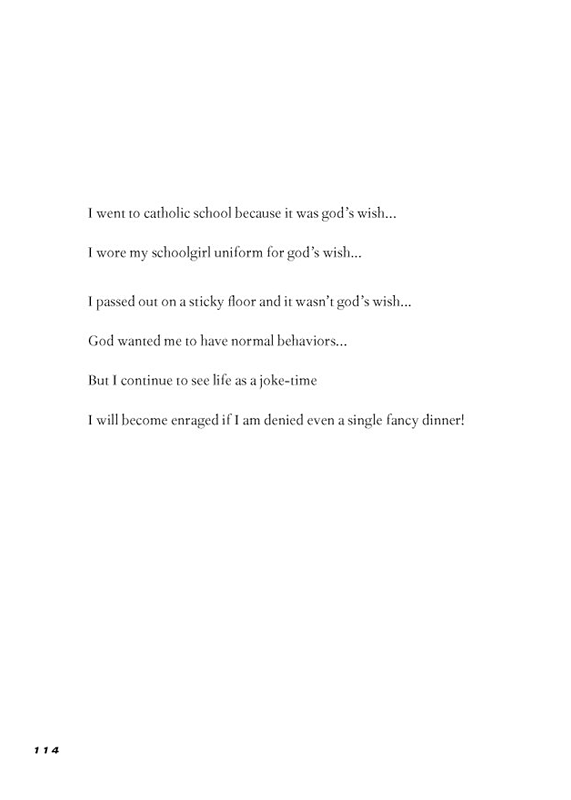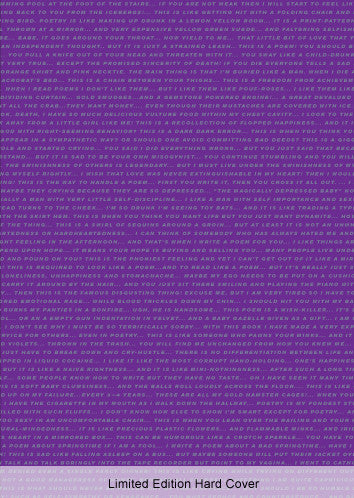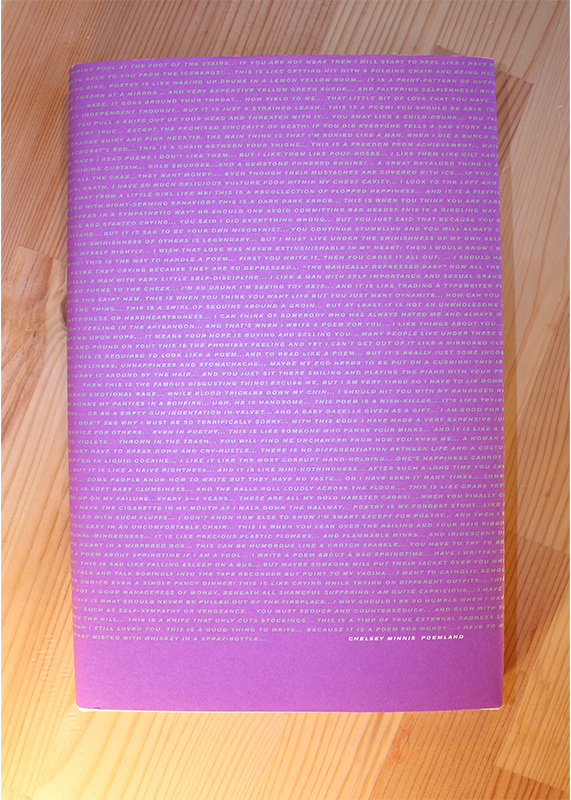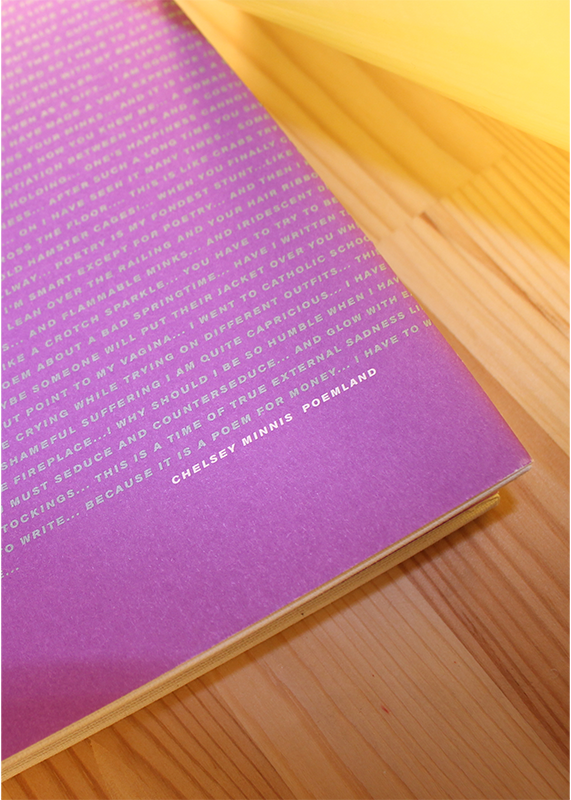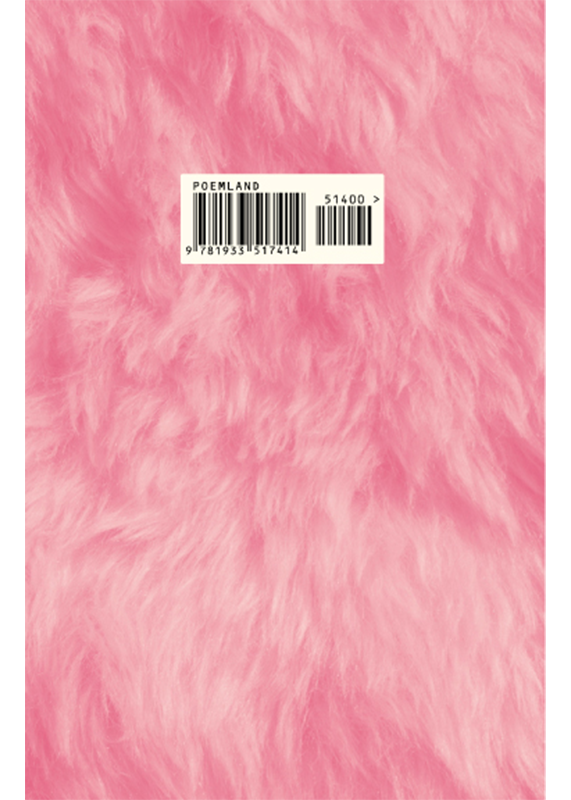
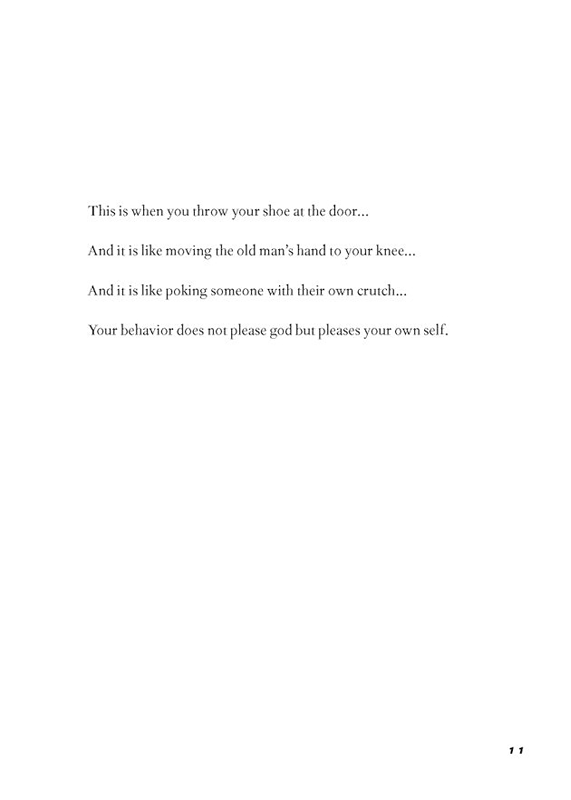
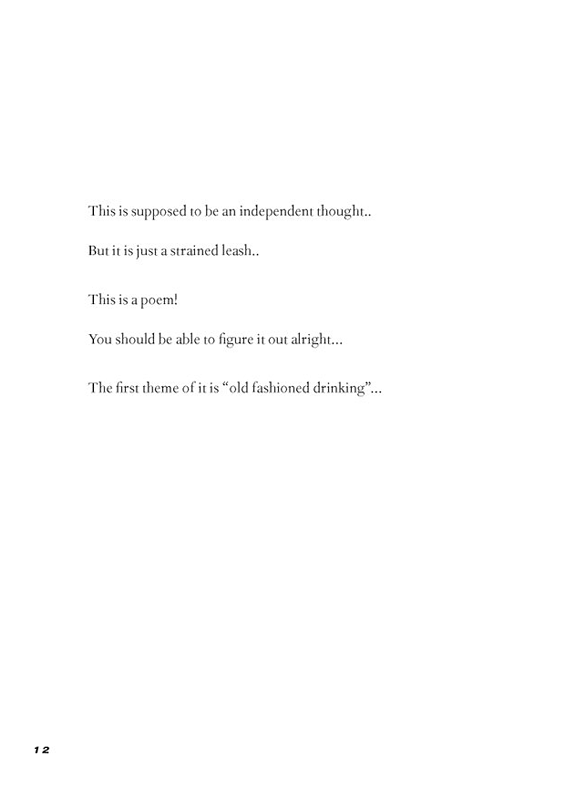
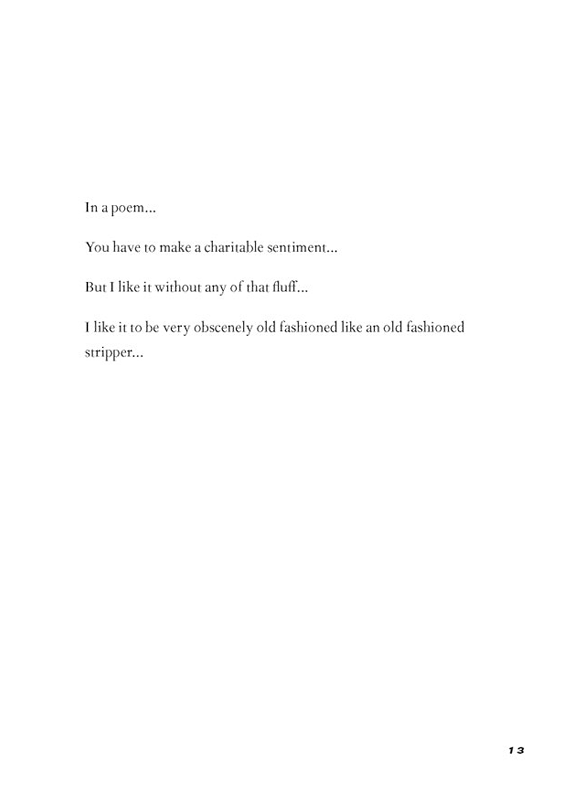
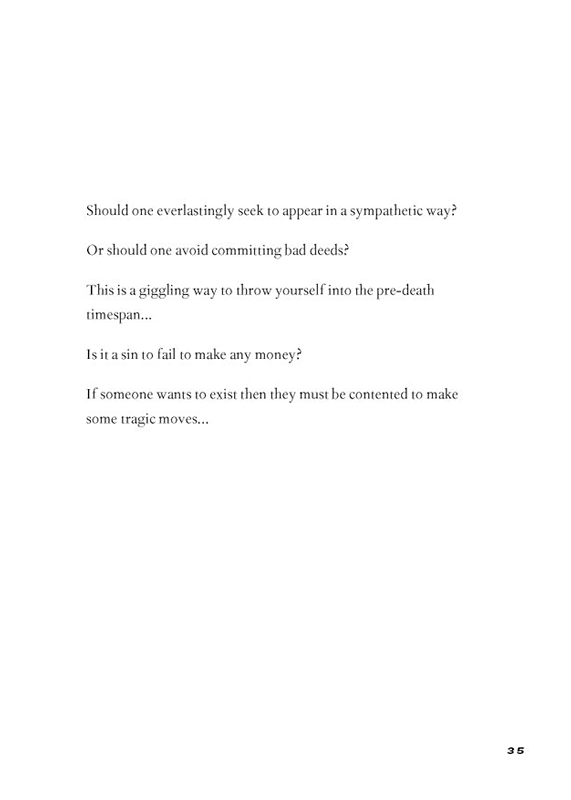
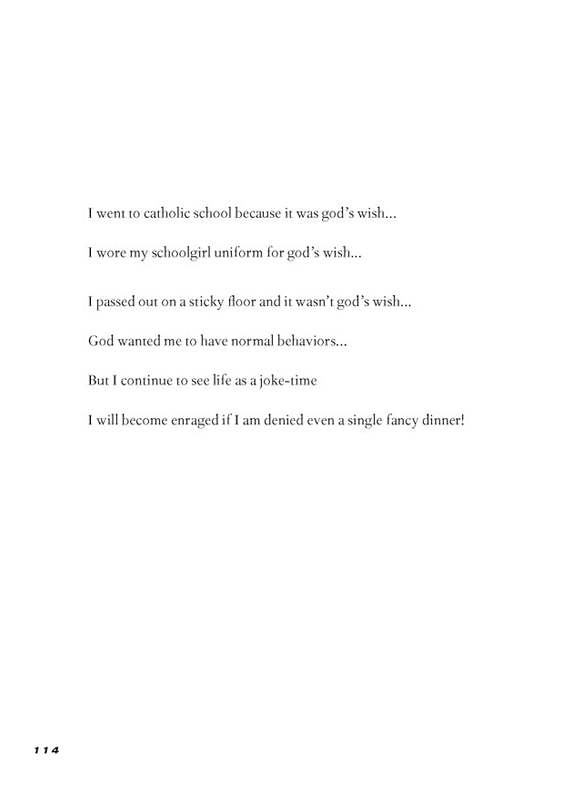
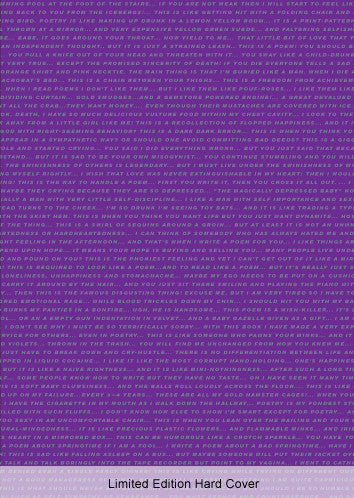
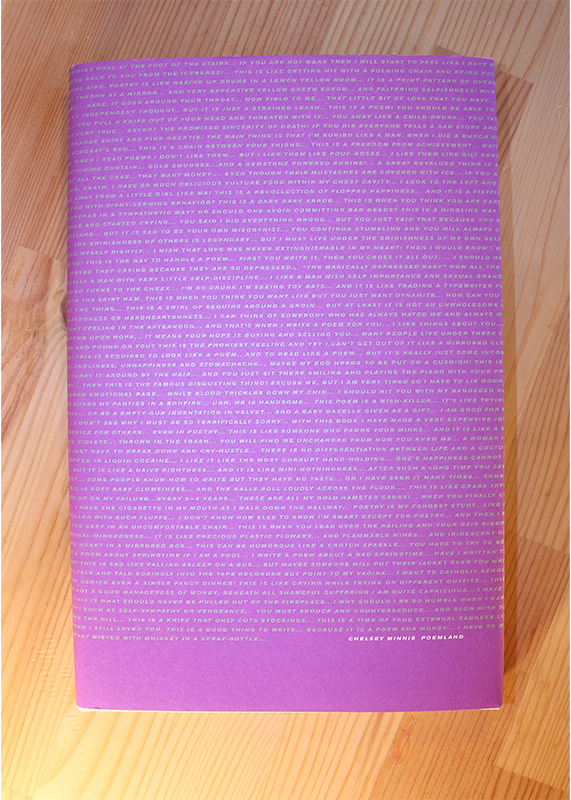
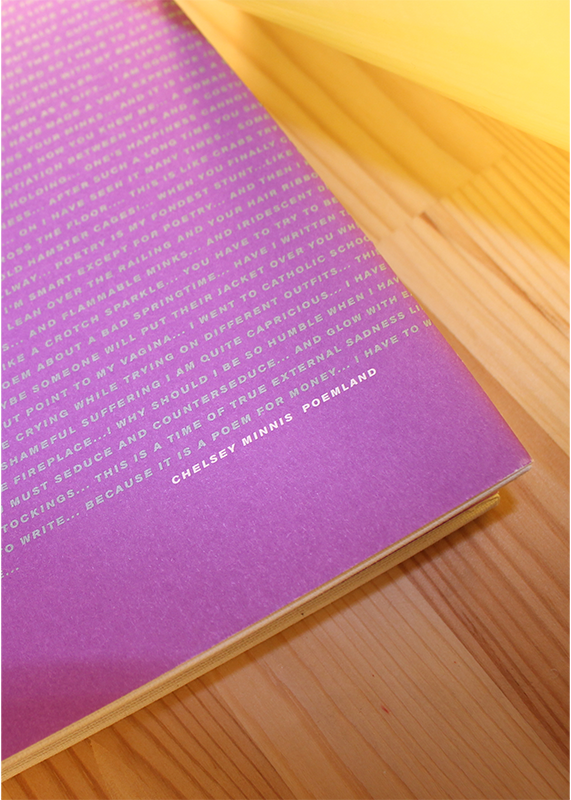
Poemland
Poemland
-
This is when you think you are earning a freedom from self-disgust through busy-work...
The poem lies on the floor until you step on it and it sticks to your shoe...
It is flimsy and soft like lemon mousse...
Poems both punishing and radiant—no one is writing like Chelsey Minnis. A fearless and uproarious litany of contentions and revelations on poetry and the poetic mind, Poemland alternates brilliantly between the deadpan, the spectacular and the outrageous. -
There’s an adolescent freshness to this collection as the poet eagerly begs for answers and flushes out her own skepticisms ... Poemland explores what it means to be a poet and what poetry is.
Julia Cirignano, Julia's Book Reviewss
The book is great and fun and interesting and enriching as hell. Buy it. Carry it around, show it to strangers: it’s a book to start things with.
Weston Cutter, Corduroy Books
In a flurry of ideas, and with her typically sparse and open-ended lines, Minnis approaches her subject from a dizzying array of angles: ironic, celebratory, mournful, panicked and often funny.
Publishers Weekly
[Minnis] has more killer lines per square-foot than Seidel even. Her subject is poetry, its awfulness, its pretensions, its ‘business’, and she arrives armed.
Sam Riviere, The Quietus
This is what Minnis excels at—teetering in perfect balance between the childishly vapid and the ultimately truthful. To write poetry, Poemland claims, is “to enchant someone meaninglessly.” And the book enchants with a long attack of self-contradicting truisms and glittering images of a bad girlhood.
Elisa Gabbert, Open Letters Monthly
Minnis takes up the charge of romanticizing drinking, smoking, and sex that [Edna St. Vincent] Millay kicked off back in the early ’20s. But the two poets are romanticizing it from different ends—Millay looks to the wildness of the future; Minnis to that of the past.
Publicola
Good metaphors operate by violating logic—they assert as true things that are obviously false or impossible—but they do so in a way that ends up making perfect sense. ’When I try to write a poem it seems reasonable...’ Minnis writes, ’But it can never be reasonable...’ In this regard, Poemland operates like one big self-aware metaphor, intelligently trying and failing to say what poetry is or isn’t.
Kathleen Rooney, Black Ocean Blog
Via references to fashion and offbeat interpersonal statements, the lines of Poemland connect the concerns of our poetry subculture (poverty, recognition, originality, connection to the past, authenticity) to culture more broadly.
Nick Montfort, Post Position
In her third full-length book of poetry... Chelsey Minnis presents an environment that forges a strong, experiential relationship between reader and text. She does this while simultaneously working to resituate poetry--or to place it firmly in an arena it is not often placed--in the realm of the purchased and the loosely domestic.
Alisa Heinzman, Mary Magazine
An electrifying and demanding poet who nonetheless recently expressed her desire to “quit” poetry, Chelsey Minnis’s third collection reads as an epic of honesty versus mendacity in human nature. Minnis expertly conducts and interior dialogue between poetry as art and poetry as vocation, between love and selfishness, between the false self of the mind and the false self one presents to others... Manic, hurried, flighty, humorous, surrealist, pained, Minnis’s words seem less to be inscribed than to bubble up from the white space of the page... Poemland can be challenging, funny, profound, and frustrating all in the same breath—one hopes Minnis will stick with poetry for many more books.
American Poet, Vol. 37, Fall 2009
...a sequence of objective correlatives for pure abjection, where everything gestures towards the most morbid collection of photographs imaginable...
Noah Eli Gordon, Lana Turner
Poetry, ego, death, inebriation, the past, cash, and gender—such are the intertwining themes of Poemland, not so much explored as remarked on in droll, four to six line stanzas surrounded by empty space. The open white of the page, in addition to the ellipses that follow most lines, provide a Zen-like quality to the poems, and an aura of wistfulness that Minnis confesses she can’t (or doesn’t want to) escape.
Brett Strickland, Stranger Passing
Poemland is written against the showboating profundity of other kinds of poetry, even as it embraces poetry like a toxic lover.
Daisy Fried, Poetry
The force behind Minnis’s work is truly in the baldness of the lines. She does not force her readers into her self made paradigms or attempts to define objective truth. She writes, you read, that’s it. No games, no pictures, no titles, just words and the meaning you glean from them. Poemland is left essentially bare, drawing on a few deep wells of the human psyche, Minnis leaves her words open to bend with the reader. She spends roughly the first half of her book undoing all the parties and champagnes and awards of the "affluent" writer and spends the last half handing the reader something completely unabated and real.
UnRonic
-
Chelsey Minnis grew up in Denver. She attended the University of Colorado at Boulder and the Iowa Writers’ Workshop. She is the author of Baby, I don't care (Wave Books, 2018), Poemland (Wave Books, 2009), Zirconia (Fence Books, 2001), Foxina (Seeing Eye Books, 2002) and Bad Bad (Fence Books, 2007). She lives in Boulder, Colorado. She also writes screenplays.
Publication Date: April 1, 2009
ISBN# 9781933517414 (5.25x8 120pp, paperback and limited edition hardcover)
Couldn't load pickup availability
